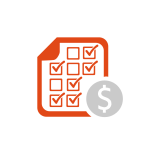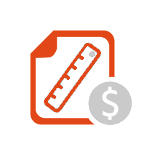-

Try & Buy
Evaluation, Demo, Trialware, Functional-limited demo version, Time Limited Evaluation
This licensing model is useful in case you want to distribute secure trial or demo version of your product. Trial licenses are granted for a short time and allow customers to try the product before buying it. Usually, production-level work is not allowed and some features may be limited or disabled in demo mode. The product is completely disabled after trial license has expired, unless full-featured license is granted.
-

Subscription
ABO, Time-limited, Time-Based, TimeVolume
Subscription licensing model allows user to enable product for a specific period of time, with the possibility of the subscription renewal (incl. auto-renewal with recurring payment support). Different subscription periods can be offered each with its own price.
-

Pricing Table
Pricing Plan, Pricing Model, Membership Plan, Membership Management, SaaS Subscription
Effectively model and manage pricing plans and features for your products and services using Pricing Table licensing model; as well as manage your customers and keep track of their memberships with the possibility to enable/disable individual features per customer.
-

Floating
Concurrent, Network, Shared
Floating licensing model authorizes the use of an application with the given number of sessions (users, hosts, etc.). The number of concurrent sessions is tracked, and the total number of running sessions of the licensed application at any time is limited by the maximum allowed sessions in the floating licenses purchased by the licensee.
-

Rental
Leasing, Feature with TimeVolume
This is a complex licensing model, useful in the case you want to license multiple instances of some entity, each instance for a certain period of time. In other words it can be described as a bunch of independent subscriptions, where customer decides in addition for how many instances he wants to subscribe.
-

Pay-per-Use
Pre-paid, Post-paid, Pay-per-click
Limits the quantity of the license uses, in addition to the license validity. License fees are based on the actual usage. The usage may be defined by various metrics such as CPU load, network bandwidth utilization, or something related to the nature of your application. The billing is tied to the usage model, which can be:
Time based: billing on the duration of use
Count based: billing on the number of uses
Volume based: billing on the amount of resource use. -

Standard
Permanent, Single-user, Perpetual
This license is a non-transferable license allowing product use on a single computer and/or by a single user. Once purchased, the product can be used without limitations.
-

Multi-Feature
Pay-per-feature, Feature-based, Modular, Multi-Module
This licensing model allows enabling or disabling product features on the user's needs and budget. It may be used to create an upgrade path from a “lite” version to “standard,” “pro,” “enterprise” etc. versions without modifying the software or uninstalling the existing version.
-

Node-Locked
Named host, Local
Software is licensed for use only on one or more named computer systems. Usually, CPU serial number verification is used to enforce this type of license.
-

Quota
Limit, Capacity, Quantity, Volume
This licensing model defines the capacity limits (e.g. units, requests, volume, etc.) for a certain product feature.
-

Named User
Personal License
License rights are granted to specific user IDs. The software may be used on any computer by a user ID that is on a list of licensed users.